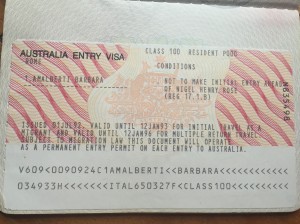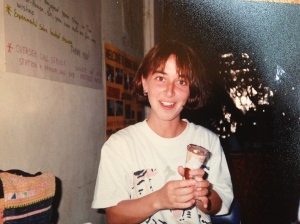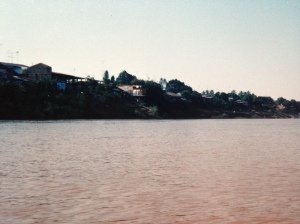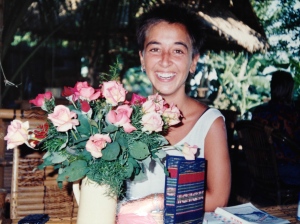Ho fatto una pausa e ritorno in questa strana giornata, di festa e di lutto: Australia Day/Invasion Day.
Siamo dall’altra parte del mondo e probabilmente non molti sanno che il 26 gennaio e’ la festa nazionale australiana. E perché siamo dall’altra parte del mondo, benché sia gennaio, e’ estate. Si celebra nei parchi e sulle spiagge, la cultura australiana in tutto il suo splendore e amore per la vita all’aria aperta: birra, salsicce sul barbecue, football, picnic.
Perché il 26 gennaio? Il 26 gennaio 1788 la prima flotta britannica sbarca a Port Jackson (Sydney). Mentre per gli invasori europei questa data rappresenta un’altra conquista coloniale, per la popolazione aborigena locale e’ l’inizio di un susseguirsi di conseguenze disastrose.
Il governo Britannico dichiara la nuova colonia terra nullius (terra di nessuno) e il massacro comincia.
Nel 1838 il giornale Sydney Monitor scrive: “e’ stato deciso di sterminare tutta la razza nera in quel quartiere”, cioè la popolazione Darug che viveva sulle rive del fiume Hawkesbury, non lontano da Sydney. La popolazione locale, senza armi da fuoco, combatte eroicamente.
Tra il 1788 e il 1920 la popolazione aborigena scende da 750.000 a 60.000, causa violenza e malattie.
Tra il 1890 e il 1960 migliaia di bambini vengono rimossi dalle loro famiglie e messi in “missioni” o dati in affido a famiglie bianche. Lo scopo di queste rimozioni forzate era quello di distruggere la cultura aborigena e promuovere quella europea.
In uno dei paesi più sviluppati e privilegiati del mondo, ancora oggi meta’ degli uomini aborigeni e più un terzo delle donne muoiono prima dei 45 anni. La durata media della vita tra la popolazione aborigena e’ dieci anni inferiore a quella non aborigena.
Mi dicono che in un non lontano passato Australia Day passava quasi inosservato. In effetti il 26 gennaio veniva celebrato solo in New South Wales, per marcare l’anniversario del primo sbarco. Solo nel 1931 diviene festa nazionale e prende il nome di Australia Day, e dal 1994, con l’istituzione del premio “Australian of the year” comincia ad acquistare maggior importanza.
L’Australia ha tante cose da celebrare ed e’ bello vedere gente felice per le strade, non dover andare a lavorare in un bellissimo martedì di sole, godersi una giornata distesi sull’erba. Ma il calendario e’ pieno di date, pieno di giorni che vorrebbero essere di festa. Questa data, purtroppo, porta con se tanto dolore.
Guardo la gente radunata nei parchi a bere e le bandiere che sventolano sulle case e sento la rabbia salirmi addosso. Non posso godermi questa giornata di festa. Non posso accettare queste celebrazioni, non posso tollerare questa mancanza di consapevolezza e di sensibilità.
Oggi in tutta l’Australia si sono svolte delle manifestazioni per ricordare lo sbarco della prima flotta e la susseguente distruzione della popolazione aborigena. A Melbourne c’erano tanti ragazzi ma anche tante mamme, tanti giovani hippy ma anche tanti signori “di una certa eta'”, tanti aborigeni ma anche tanti bianchi, tanti australiani ma anche tante altre nazionalità. E per la prima volta questa giornata ha avuto un significato.
Penso sia importante ricordare anche questo aspetto dell’Australia. A chi interessa saperne di più, suggerisco alcuni articoli.

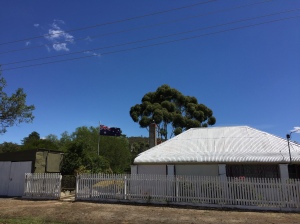
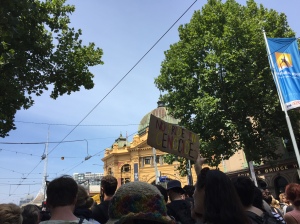
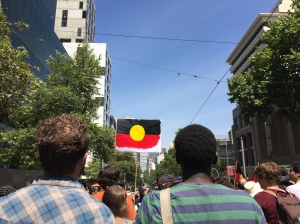
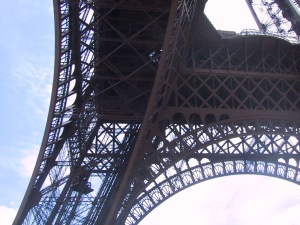 Paris is in my heart. It has been there for so long, I hardly remember a time when it wasn’t. I walked off the train in Gare de Lyon, I was 19 years old, carrying a big pack on my back, I felt strong and free. Finally stepping in the world, Paris caught me in its embrace and never let me go.
Paris is in my heart. It has been there for so long, I hardly remember a time when it wasn’t. I walked off the train in Gare de Lyon, I was 19 years old, carrying a big pack on my back, I felt strong and free. Finally stepping in the world, Paris caught me in its embrace and never let me go.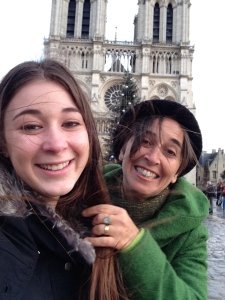 And then it all changed. It started when I read a friend posting on Facebook, to someone living in Paris, “Are you ok?”. In the past few years I have become suspicious of such harmless enquiry. I immediately think: something has happened. But I don’t like this new way of being, this fear that creeps up and makes me look for bad news. I ignored my uneasiness. It was Sofia who told me and I could not ignore it anymore. It was Paris, again.
And then it all changed. It started when I read a friend posting on Facebook, to someone living in Paris, “Are you ok?”. In the past few years I have become suspicious of such harmless enquiry. I immediately think: something has happened. But I don’t like this new way of being, this fear that creeps up and makes me look for bad news. I ignored my uneasiness. It was Sofia who told me and I could not ignore it anymore. It was Paris, again.